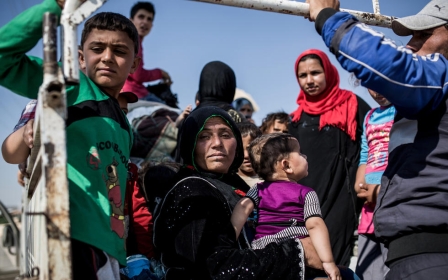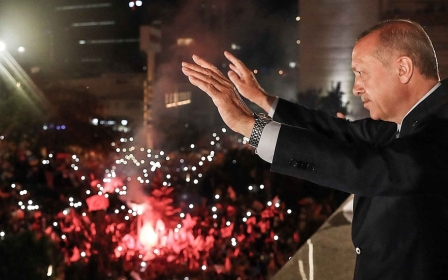Turkish state of emergency to end on Monday, says prime minister
Turkey’s Prime Minister Binali Yildirim said on Thursday that the country’s state of emergency will end on Monday, almost two years after the 2016 coup attempt.
“The new cabinet will be announced on Monday, and the state of emergency will conclude,” Binali Yildirim told state-run Anadolu new agency.
However, he added that a decree will be issued on Friday that “will include necessary measures to avoid vulnerability in the area of counter-terrorism once the state of emergency is over”.
The state of emergency first went into effect on 20 July 2016, five days after the coup attempt that left around 300 people dead.
The emergency rule has given President Recep Tayyip Erdogan and his government sweeping powers, which they say have been necessary to expunge state institutions of members of US-based cleric Fethullah Gulen's movement, which Turkey blames for the attempted coup.
In April, the European Union called on Turkey to immediately lift the state of emergency, saying it curtailed political and civil rights.
The EU's European Commission said that under the Turkish state of emergency more than 150,000 people had been taken into custody, 78,000 arrested and over 110,000 civil servants dismissed. Turkish authorities say that some 40,000 have been reinstated in the process.
Monday is also the day that Erdogan will be sworn in as president under the country's new constitution, which was approved by Turkey's electorate in a referendum held in April 2017.
During the election campaigning Erdogan vowed to lift the state of emergency after the polls.
"Lifting the state of emergency does not mean abolishing it completely not to come back. We'll take whatever the toughest precaution is again when we see terror,” he said.
Critics say Erdogan has used the state of emergency as an excuse to silence opponents. The president and the government, however, say it has been necessary to fend off security threats.
The state of emergency was most recently extended by parliament on 18 April.
Middle East Eye propose une couverture et une analyse indépendantes et incomparables du Moyen-Orient, de l’Afrique du Nord et d’autres régions du monde. Pour en savoir plus sur la reprise de ce contenu et les frais qui s’appliquent, veuillez remplir ce formulaire [en anglais]. Pour en savoir plus sur MEE, cliquez ici [en anglais].




